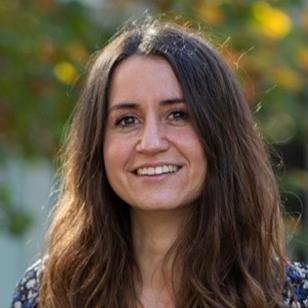Empowering youth leaders: driving climate action through tailored-made learning
Today’s youth population (nearly 1.9 billion) bear the brunt of complex global crises such as the recent COVID-19 pandemic and the impact of climate change. But far from being passive victims, young women and men continue to emerge as catalysts of change, spearheading innovative solutions and leading their communities towards responsible and sustainable progress.
Recognizing the expertise and determination of young people, the United Nation System Staff College (UNSSC) partnered with the Office of the Secretary-General's Envoy on Youth (OSGEY) to deliver a tailor-made training as part of the "Youth Force: Transforming Accountable Growth and Recovery from COVID-19" project. The initiative focuses on empowering young individuals as key partners in implementing the 2030 Agenda.
A total of 12 youth advocates from diverse backgrounds and thematic areas of expertise were selected to participate in this transformational initiative.
Check out their profiles by clicking on the bottom-right corner arrow to view it full screen
https://view.genial.ly/64b554d32b961000111a497f
Understanding Climate Action
“Young people are agents of change. They are working within their communities to educate and take action, so we have to invest in their agency, and we have to recognize that they are not only working for the future but also for the present world we are living in here today. Youth are key stakeholders in achieving a green and sustainable recovery.” ~Wevyn Muganda - UNICEF GenU YPAT & ISIRIKA Representative
The training revolved around the central theme of climate action, placing it at the heart of each participant's learning journey. In fact, on the first day the young changemakers agreed on the following definition of climate action as a guide for their interactions in the training and future actions in their communities:
Climate action is an inclusive, innovative and sustainable action which is aimed at building environmental consciousness on human and non-human activities towards the preservation and protection of life on land and water, thereby reducing the adverse socio-environmental consequences of climate change. It is also a holistic movement to make the ecosystem resilient and sustainable through multilevel individual and systemic efforts, taking into account the needs of current and future generations.

The learning programme went beyond the exchange of knowledge and experience. The facilitators’ cross-sectorial approach enabled discussions on diverse topics, from visualizing the future through foresight and future literacy methodology with UNESCO, to understanding intersectionality in work with civil society actors (Lingkar Temu Kabupaten Lestari and Slow Factory), and finally concluding with honing one’s advocacy skills with Dr Michael Shank from Carbon Neutral Cities Alliances and New York University.
Participants also had the opportunity to delve into the more technical aspects of climate finance with Dora Cudjoe from the Climate Investment Fund and green recovery implementation practices with Ashu Hailshamy of the United Nations Integrated Strategy for the Sahel region (UNISS)
“We learned how to use innovation, to think, to look to the future and to plan, but we also learned how to go back to the past, to see the kind of actions or activities that were done in the past so that we can talk about or prevent future actions. .” Sylvain Obedi – coordinator at Enable the Disable Action ENA
Turning knowledge into action
During the action planning exercise, participants were challenged to develop a plan that would have potential positive impact on at least 50 people over a period of six months, within a specific budget. This exercise empowers young leaders to turn their visions into a reality.

Zeinaba Narabene Farka from Mali found the exercise meaningful. It allowed her to develop concrete solutions for changes she had been advocating for in her community. One such solution involved initiating a reforestation project to raise awareness about its importance, contributing to sustainable environmental preservation.

Mariama Camara Cire from Guinea focused on the lasting impact of the COVID 19 pandemic on young farmers. It left a deep fear of potential losses, prompting them to abandon their profession. After this training, Mariama's key priority is to construct wells and irrigation systems to empower local youth to reclaim their agricultural livelihoods.

Thinley Norboo from India will go on to encourage young people in his community to invest in organic sustainable agriculture. Recognizing the significance of environmental responsibility, he will advocate for farming practices that protect the planet, nurturing a shared commitment to a secure and sustainable future for all.

Carlos Eduardo Perez Murcia's project on ocean education has already made a profound impact, reaching 30 countries worldwide. Inspired by the action planning exercise, he will now aim to bolster the advocacy skills of the next generation of ocean activists through an innovative hackathon challenge.
The collective efforts of young leaders like Zeinaba , Mariama, Thinley, and Carlos exemplify the transformative power of youth-driven initiatives in driving positive change on a global scale.
Looking to the future
The youth force training underscores the importance of accountable climate action for all. Through this capacity building initiative, young leaders gained valuable insights, knowledge, and tools to enhance their leadership skills and effectively advocate for climate action and green recovery through their individual programmes.
The training has offered participants a unique opportunity to reflect on multiple levels of change, including the policy, regional, and personal dimensions so they can lead the way towards a brighter and greener future for all.


